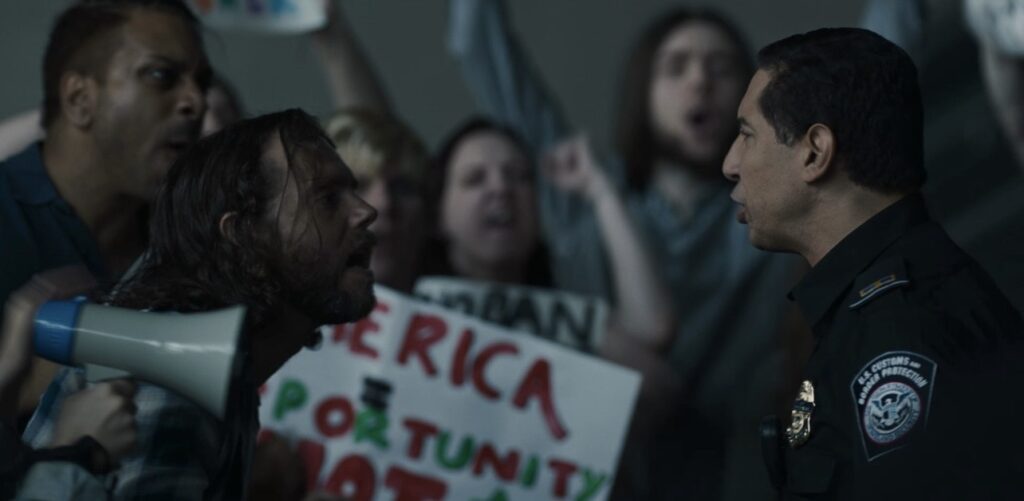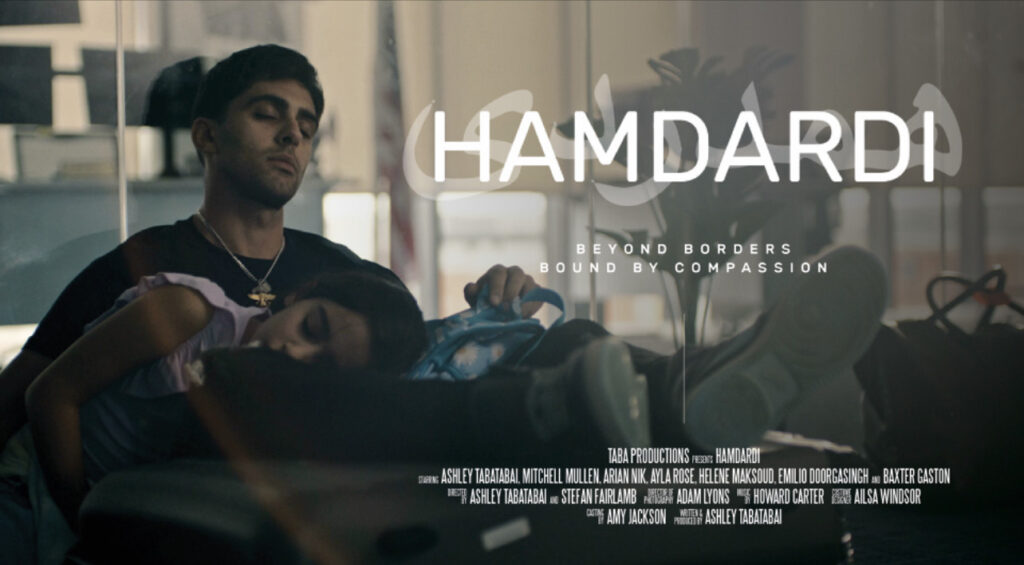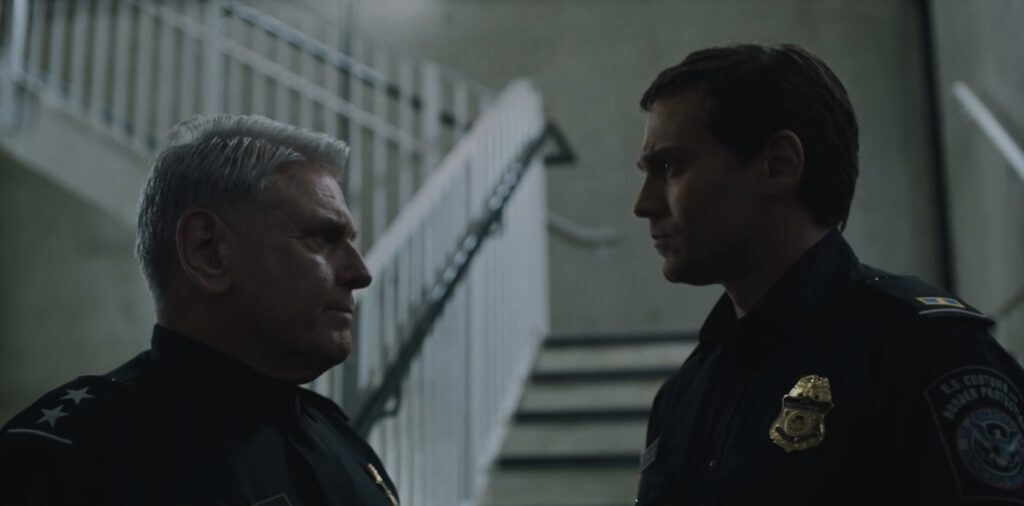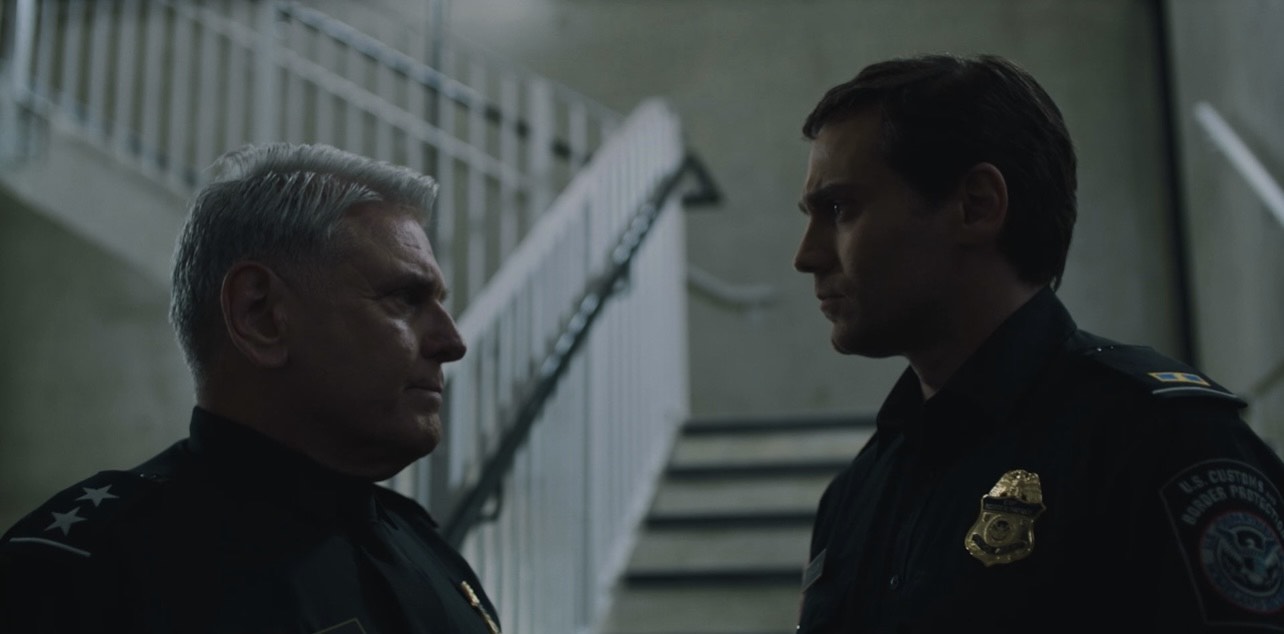The 2017 Muslim travel ban represented xenophobia in its most pure form, and arbitrarily refused to acknowledge that individuals never fit into a one size fits all category. Ashley Tabatabai’s 25 minute short gives us several heart wrenching emigration stories. Hamdardi doesn’t just caution about the tragedy of the oppressed, there is also a powerful narrative that conveys the tragedy of the oppressors.
The story begins with Reynolds (Tabatabai). The TSA has lost custody of his child, and yes, there is heartbreak on both sides of the ocean. A crucial element to the story, because nothing happens in a vacuum.

We move on nonetheless, and we are introduced to the low level face of the policy. Hank, the TSA in charge, has been on the job for quite a while, and he definitely doesn’t try to hide all the life that this job has taken from him.
Like a summation of every downtrodden government bureaucrat we’ve ever encountered, Mitchell Mullen carries the long years in his entitled demeanor and dismissive tone, and no matter the situation, there’s an abrupt, callous handling that puts his interpretation first.
Add in the travel ban, Hank’s ire and racial insensitivity cannot be contained, and his victims are completely at the mercy of this soulless, domineering official. Worse yet, Hank’s lot in life has an effect on his underlings, and they simply pay it forward – so to speak.
Enter a pair of siblings from Iran, and since Reza (Arian Nik) and Parvaneh (Ayla Rose) are unaccompanied minors, the temperature does actually go down a notch. The actor’s shrill delivery is suddenly not so sharp. But just because his dog whistle isn’t so easily heard, doesn’t mean the tiger has changed his stripes.

“Arab,” he asks the older brother, and “Iran” is the timid reply. Hank’s deafening response – minus the tone – reinforces the prejudice in spades. “Arab,” Hank reiterates and proudly wears ignorance on his sleeve.
Chilling, the older brother fully understands what he is up against and responds angrily in kind. So Hank obviously knows what he is doing.
But Reynolds plays counter, and under this new directive, we can see Tabatabai attempting to compartmentalize the inner conflict. A tall order, professionalism mostly wins out over his frustration, and we feel Tabatabai’s struggle to keep a level head.
As a result, the actual definition of public servant comes to mind, and in this, we are truly given the opportunity to see the main victims as human beings. First, Reza is the older, but he still is a teenager. This means, like any person coming of age, Nik must balance the fears of a child against taking on the weight of an adult.
So as his character’s uncertainty comes across, Nik must hide it to comfort his school aged sister. Soft spoken and soothing, Nik has Reza rising to the occasion.

As for Parvaneh, Rose has her character doing what children do. The actress masks her fears by conveying a reserved denial.
Still, Reynolds must act within the system, and the Adam Lyons cinematography constantly reminds us. A darkened shadow encompassing the setting, the light entering from the windows tells us that the inhabitants are trapped inside, and the melancholy score (Howard Carter) exuding hopelessness, the terminal’s imposing architecture means no escape.
Hank, the first prisoner and carrying a life sentence, he’s a mirror that Reynolds cannot look away from. Thus, the young TSA sees a man who probably had to compromise his own values, and in order to survive, the humanity has been chipped away over time.
Add in whatever travails he faced, and the young man that Hank once was has been completely subsumed. Reynolds stands on the same personal and professional precipice, and is on his way to being the next victim.
That’s certainly the expectation of those in charge, and unfortunately, most of us don’t have the strength to overcome the machine. But while we are pulling for the young father, this film puts it on us. We must take on the system as a whole. or the victims on both sides of the paradigm will just keep coming.


